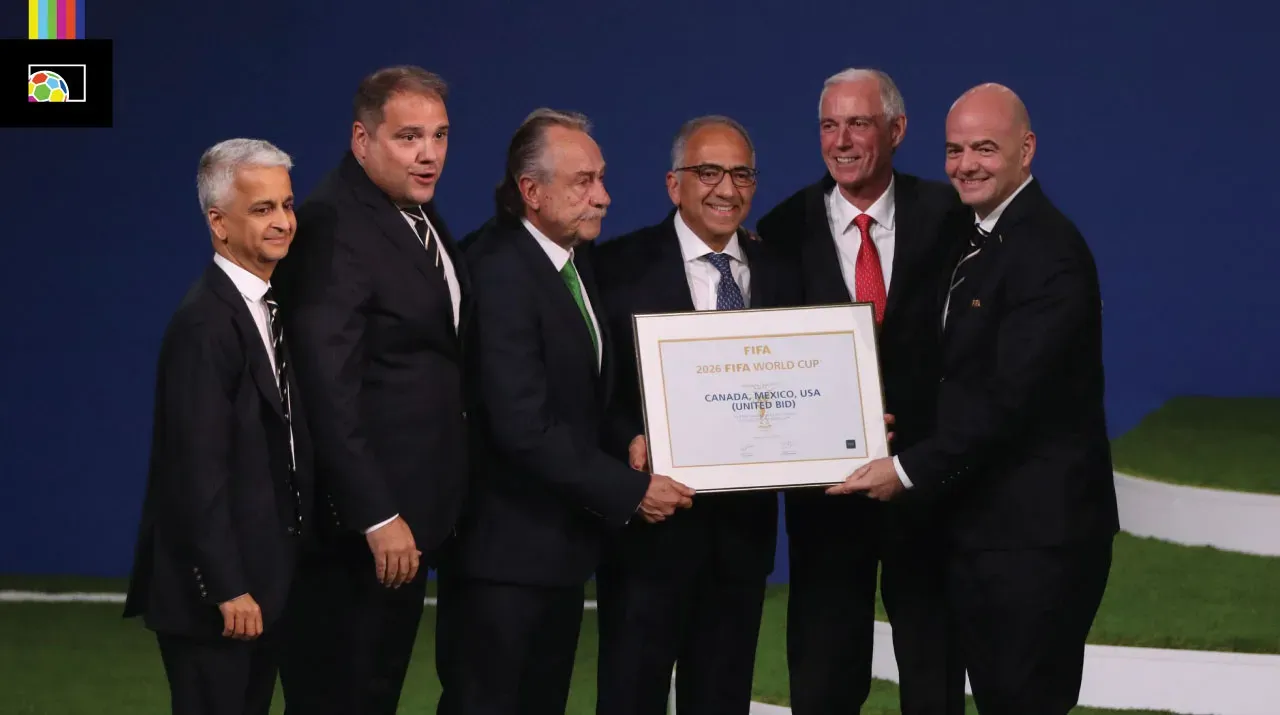The FIFA World Cup is the biggest sporting event in the world. Every four years, a world champion is crowned, and the month-long festivities captivate nearly the entire planet. Traditionally, just one nation handles hosting duties for the tournament. But can multiple countries host the FIFA World Cup? The answer is yes – and it’s becoming a more common occurrence.
FIFA World Cup tournaments with multiple host nations
For the entire history of the competition, only one nation hosted each FIFA World Cup. That is, until 2002.
Korea / Japan 2002
The mold was broken when South Korea and Japan shared the honor of welcoming the world’s top national teams for the first World Cup of the 21st century.
Brazil took top honors (and the award for worst haircut) that year, winning their fourth, and most recent, World Cup title.
As of 2023, this was the only World Cup to date hosted by more than one nation. But that’s about to change in a big way:

United States / Mexico / Canada 2026
For the first time since 1994, the men’s World Cup will return to North America for the next edition. And for the very first time, three countries will host.
The USA is the main host, with most games and venues Stateside. The USA hosted the 1994 tournament, which still holds attendance and revenue records.
Mexico hosted in 1970 and 1986, while Canada is making its men’s World Cup hosting debut. Canada did host the 2015 FIFA Women’s World Cup.
The USA will host the final of the tournament as the main host in 2026.
Morocco / Portugal / Spain / Argentina / Paraguay / Uruguay 2030
Not content with just three countries, the World Cup goes trans-oceanic in 2030 to celebrate its 100th anniversary.
SIX countries in total will host games for the centenary celebration. While the bulk of the tournament will take place at the gateway to the Mediterranean – Morocco, Portugal, and Spain – the three opening games will take place halfway around the world in South America. Why? The original World Cup took place in Uruguay in 1930.
Spain previously hosted the 1982 World Cup, while Uruguay as noted hosted the first World Cup, and Argentina were hosts in 1978. Paraguay, Morocco, and Portugal will see the first World Cup games on their soil in 2026.
It has not been announced which nation will host the final, but it is probable one of the iconic Spanish stadiums may be chosen for the honor.
Things will return to normal in 2034, with Saudi Arabia expected to go solo for the following competition.
Australia / New Zealand 2023
Multi-national World Cups aren’t just for the men! Just this year, the first Women’s World Cup took place across multiple countries, and technically, multiple continents.
Australia (a member of the Asian Football Confederation) and New Zealand (of the Oceania Football Confederation) split duties as Spain captured their first world title.
These certainly won’t be the last multi-nation World Cups for either version of the tournament. As single nations become less and less interested in the massive commitment to host these major events, countries pooling resources to host will likely become the more common scenario in the future.
